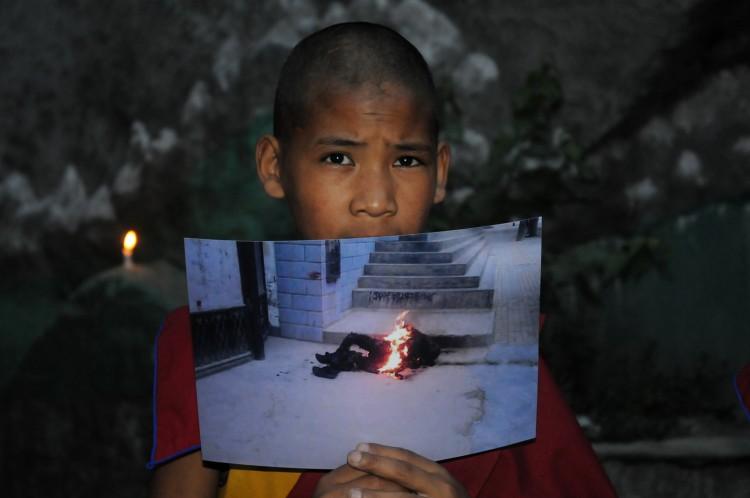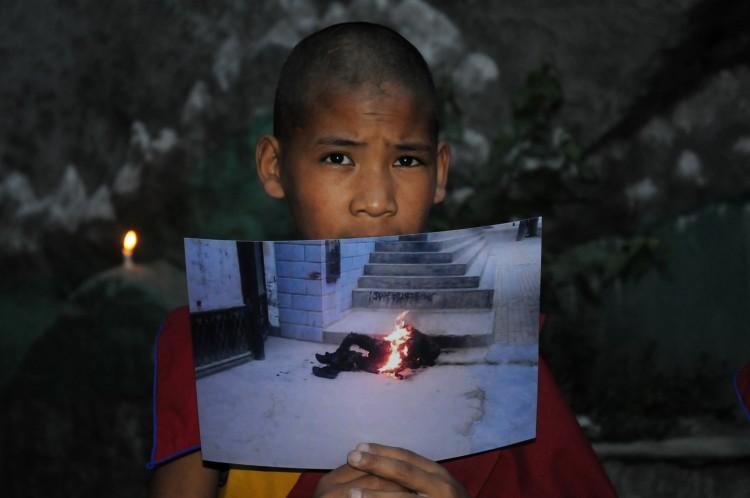A prominent Tibetan monk received a seven-year jail sentence in China for spreading information in Tibetan regions, which according to reports this week, has been in the midst of an escalating crackdown at the hands of the Chinese regime.
Yonten Gyatso was sentenced in mid-June in Ngaba, located in Sichuan Province, but his situation only came to light on Thursday, according to Reporters Without Borders, a media watchdog.
“His friends and family, and the news organizations to which he contributes, only heard about it yesterday,” Reporters Without Borders said, “two months later – a sign of the lack of transparency concerning prisoners in Tibet.”
Gyatso was also tortured and beaten by Chinese authorities while in custody, according to the watchdog, citing local sources.
Gyatso is accused of spreading photographs and information regarding the self-immolation of a nun and information about China’s ongoing crackdown in Tibet. According to Radio Free Asia, more than 1,000 people have been detained in Driru county in the Tibet Autonomous Region, a sign that Chinese regime officials have escalated security measures.
In the Tibetan capital of Lhasa, Chinese officials set up a large number of checkpoints and body-scanners in busy downtown areas, RFA said.
“Lhasa city has been turned into a large prison,” a Lhasa resident, who was not named, told the broadcaster. “There are police everywhere in groups of 10 or more with rifles, batons, and fire extinguishers on each of them.”
Another Lhasa resident said Tibetans from other parts of China trying to come into the city were denied entry. Tibetans who do not have a permit to be in the city were deported to other parts of China, the resident added.
“Lhasa is overflowing with Chinese, and the Tibetans cannot get involved in arguments with them,” he said, adding that there are serious ethnic tensions between the two.
“If any Tibetan is involved in a dispute, the Tibetans will be the losers,” he said. “If we speak and argue with the Chinese, they call this the ‘politics of separation.’”
Since 2009, around four dozen Tibetans have set themselves on fire, with many dying on the spot, in public places to protest against Chinese rule. The Chinese regime has been keen to prevent the spread of information regarding the self-immolations, taking measures to cut telecommunications or even electricity in some Tibetan regions.
Reporters Without Borders termed the information flow in Tibet “problematic” because “independent reporters are not allow into the region, apart from a few foreign journalists making the occasional visit with official approval.”
The media watchdog said Beijing has increasingly isolated Tibet from the rest of the world, calling the move “worrying.”
The intense crackdown on Tibet could be related to the regime’s desire to “maintain stability,” as the Chinese Communist Party has called it, ahead of the 18th National Congress when current leader Hu Jintao steps down and new members are sworn into the Politburo, China’s highest policymaking body.
The Epoch Times publishes in 35 countries and in 19 languages. Subscribe to our e-newsletter.






